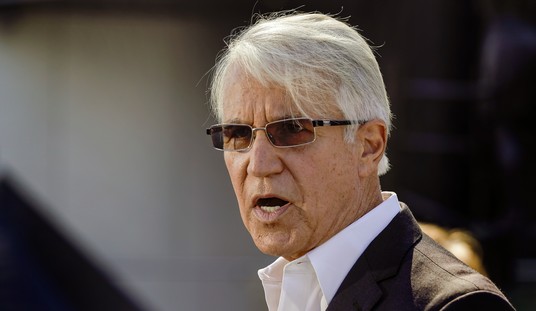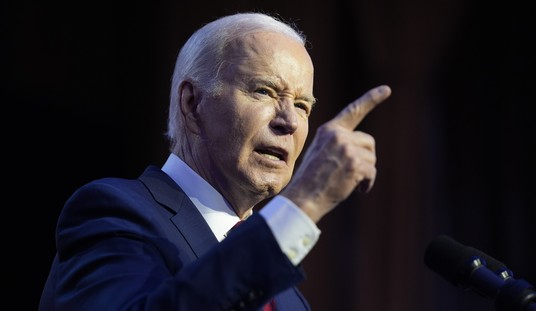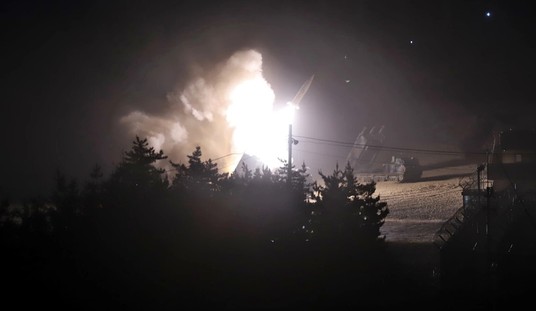
In July 2018, former Secretary of State Hillary Clinton sat for an interview with NYU clinical associate professor, Timothy Naftali, at the Richard Nixon Presidential Library and Museum in Yorba Linda, CA. This was part of “An Oral History of Richard Nixon” project. (The interview can be viewed here.)
The sit-down received very little attention at the time, but was recently republished. I found the transcript to be both surprising and interesting. (And I am not a fan of the former First Lady…at all.)
Considering the difficulty Clinton has had in coming to terms with her bitter loss to President Trump, I did not anticipate the sober message she is conveying to House Democrats. Her cautious tone was unexpected.
In a nutshell, her message was to, “steer clear of politics, don’t hold press conferences and avoid leaks.”
She did not mention President Trump. She discussed her experience working for the House Judiciary Committee as a young lawyer during the debates among members over whether or not to impeach then-President Nixon. She had been one of the recent law school graduates who had been hand-picked by John Doar, the Committee’s lead impeachment staffer. Doar was a “Republican who had served as a civil rights chief during the Kennedy and Johnson administrations.”
Clinton began this job in January 1974. She was 26-years-old and had graduated from Yale Law School the previous May. She said she and her fellow staffers worked 16-18 hours each day, weekends included.
This experience instilled in her an understanding of the gravity of impeachment. She told Naftali:
Impeachment is such a serious undertaking. Do not pursue it for trivial partisan political purposes. If it does fall to you while you’re in the House to examine abuses of power by the president, be as circumspect and careful as John Doar was. Restrain yourself from grandstanding and holding news conferences and playing to your base. This goes way beyond whose side…you’re on or who’s on your side. And try to be faithful purveyors of the history and the solemnity of the process.
Clinton recalled she and her colleagues “transcribing a White House audio tape of Nixon listening to other tapes — committee aides called it the “tape of tapes.””
So, we would sit there with the headphones on, just exhaustingly listening, trying to make out words. Some of the transcription already occurred, but some of it was garbled, it was not at all clear. But the tape of tapes was a big revelation to me. I had no idea that he would be taping himself listening to tapes and then coming up with rationalizations. So, he would call somebody into the room, and he would say, ‘I want to play this for you. Now when I said that, here’s what I meant.’ So, it was really a shocking experience.
I think for me it was listening to the tapes, and particularly the so called tape of tapes because it was almost a textbook example of someone trying to get stories straight and getting other people to get their stories straight.
She describes Doar’s warnings to the staffers to maintain “poker faces in hearings and meetings with lawmakers.” Clinton explained:
He said, ‘Don’t talk to anybody. Don’t make facial expressions. Don’t portray any opinion. We were there just to make a presentation to the members of the committee.’ So, it was a matter of honor that we would maintain the secrecy that was so critical for this, for this whole investigation.
I think that, first of all, there are no cell phones, that makes a big difference. But I think he, by just force of character, made it clear to all of us.
Doar also instructed them to ignore reporters and above all, not to leak information to the press. She said, “We would just walk by.” Clinton said they “did not know where this was going to end up.”
I certainly didn’t. I didn’t come into it with any preconceived notion that, OK, this is going to be easy. We’re going to lay out all this stuff then the House will impeach and then he’ll be convicted in the Senate. I certainly didn’t do that. I don’t know anybody who did. And because it was such a historic experience, we all felt the weight of that responsibility. And John made very clear that we would be betraying our duty as lawyers and our historic obligation if we talked.
How politics have changed over the past 50 years. House Democratic leaders such as Jerry Nadler and Adam Schiff can’t seem to get enough of the spotlight. They hold press conferences after committee meetings and appear regularly on cable talk shows along with many other politicians, commentators and strategists. Leaking has become a common practice.
She and her fellow staffers conducted their research and ultimately produced “some rough guidelines that lawmakers could follow as to what constitutes an impeachable offense.”
Once I had done the research it seemed clear to me that the president was not above the law. The president did have certain authorities, certain standing. So it didn’t require that there be a crime charged in order for there to be an impeachable offense. But what that impeachable offense was often keyed to what we think of as criminal behavior.
So obstruction of justice is a crime. And whether a president is ever charged with obstruction of justice or not, the obstruction of an investigation can represent abuse of power that rises to the level of high crimes and misdemeanors and therefore be the basis of an article of impeachment.
Then, as now, there were members of Congress who were reluctant to vote for impeachment “without a guarantee the Senate would back them up with a trial that convicted the president.”
Well, I think that that’s one way of looking at it and it certainly is defensible. But I think another way of looking at it is that if you are persuaded that the president has abused power, committed a high crime or misdemeanor then it’s up to the proof that has to be presented in a trial to determine whether two-thirds of the Senate agrees with that. And remember the senators could bring whatever assessment they wanted to this determination. And you couldn’t second guess that, you couldn’t preempt that. It had to be left to them.
She also told Naftali that “she didn’t celebrate how the Nixon presidency came to its end.”
I was not at all happy or jubilant about him resigning. I thought it was a very sad chapter in our history. I thought the actual departure was a really poignant, painful moment for him and his family as well as for the country. So, I watched it on TV, like I guess everybody else did. And it was a really very unfortunate, sad outcome.
I think it’s important to keep talking about how serious this is. It should not be done for political partisan purposes. So, those who did it in the late 90s, those who talk about it now, should go back and study the painstaking approach that the [Watergate] impeachment inquiry staff took. And it was bipartisan. You had a bipartisan staff and you had both Democratic and Republican members of the committee reaching the same conclusions that there were grounds for impeachment.
The main difference between Watergate and the current efforts to impeach Trump by House Democrats is that in 1972, an actual crime occurred. Although the crime itself was minor, Nixon orchestrated a coverup and prosecutors had real evidence in the form of a recording.
Can a president really be impeached for angry words? For asking a subordinate to fire someone whom he had the constitutional right to fire, even though it wouldn’t have been in his best interest? Moreover, the subordinate refused to follow the order.
If only her Democratic colleagues in the House would listen to these words. But they won’t. Many of them still haven’t let go of the Russian collusion narrative.
Others have, yet they still cling to the obstruction narrative. They will have a tough time trying to prove that a man who was wrongly accused of stealing an election, and spent the first half of his presidency under a cloud of suspicion because of a bogus investigation, obstructed justice.
While most other Democrats have moved on to the “Trump is a racist/white supremacist” narrative, Nadler remains stuck.
Let’s keep him there.














Join the conversation as a VIP Member